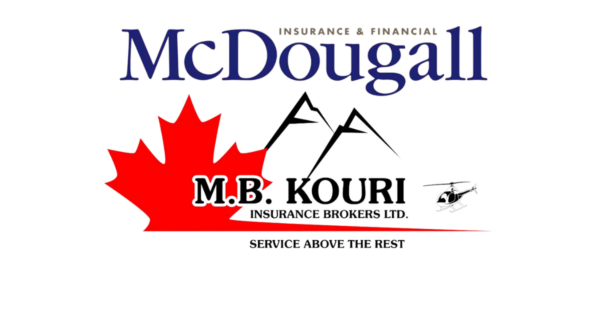
Why is my car insurance so expensive?
Are your car insurance in Ontario too high? Do you want to know why? Despite the promise for relief by the Ontario government, auto insurance companies in Ontario still charge premiums that are often higher then anywhere else in the country – but not without reason. Insurance premiums correlate with the amount of risk you present to an Insurance company: the more likely you are to have a claim, the more you will have to pay. It’s not some magic trick designed to make you pay as much as possible. So if your charged based on how risky you are to a company, how does the company figure that out? How do they know you are risky? McDougall Insurance explains.
1: You have a bad driving record (or are young)
This one is simple and self-explanatory. Drivers who have already been in an accident have a higher chance of being involved in more, so they represent more risk for insurance companies (and must pay a higher premium). This fact is completely separate from your own opinion of your driving, or the opinion of others. Anything you say is treated as being irrelevant due to how difficult it is to determine if you are being truthful or not (and honestly, how many people would go to an insurance company and gladly admit to being a horrible driver?). Telematics may change this, but without more advances in technology (and invasion into your privacy), the only information the insurance companies care about are averages and statistics. And on average, people with a poor driving record (history of accidents) get into even more.
This is why the insurance companies give no credit to accidents that occur because you are unlucky. It doesn’t matter that the crash happened in bad weather, or that you got distracted by your wife going into labor. All that matters are the probabilities, and statistics doesn’t act lenient. The same principle applies for speeding tickets, as those with speeding tickets get into more accidents, and therefore also cost insurers more money.
A parallel to this is young drivers, who also must pay more, not because of necessarily a “bad” driving record, but because of inexperience. Young drivers get into far more accidents than any other driving group in Canada. New drivers struggle operating safely without the benefit of years of experience, and because of this the insurance companies have to charge more to prevent young drivers from bankrupting them. It doesn’t matter if you (or your child) are (is) the best driver you’ve ever seen, they still have to pay more.
2: You drive A LOT
It isn’t just driving records that will go into your insurance price, the distances you drive also factor in. Simple logic dictates the more you drive, the more you expose yourself to the risk of getting into an accident. And it’s not just increasing the chances of you hitting something, but also increasing the likelihood of you being hit by someone else.
When you apply for auto insurance in Ontario, you need to disclose your daily commute distance, and how many kilometers you believe the vehicle will be driven each year. These figures are then used to help determine your premium. The higher they are (especially the daily commute), the more you will have to pay.
That said, never, under any circumstances, intentionally misstate your commute or annual usage, to try and save money. Doing this qualifies as misrepresentation, which roughly translates to insurance fraud. If your company finds out, they will not respect your insurance policy, pay your claims, and may take legal action against you.
3: You are driving in a busy place
Where you drive, as much as how you drive, plays a role in how much you will be charged for insurance. Some areas of Ontario are more dangerous to drive in then others, particularly dense urban cities like Toronto or Ottawa.
Your insurance company uses your postal code to assign you to one of several “territories”, each of which has its own level of risk and associated premium structure. It’s a nice benefit for those of us buying insurance in Arnprior, Napanee or Gananoque, as you get a substantial benefit for living in an area without super dense vehicle traffic. However, its less positive when purchasing insurance in Oshawa, Toronto or Hamilton, as you will have to pay more than your counterparts in smaller cities and towns.
4: You have a young/bad record driver in your household
Interestingly enough, it’s not just your driving that will influence your insurance premiums, but also the driving of other licensed drivers – even if they aren’t the primary operator of any vehicle. Because insurance companies require all licensed drivers in your household to be included on your policy or have a policy of their own (it is assumed they will use your vehicle at some point, which is logical if you think about it), you may find yourself including children or spouses on your policy.
If these other drivers have a bad record, this will drive the price up for you, as the insurance company must consider the risk of the other driver operating the vehicle. If the other driver is very risky (young, bad driver), the insurance company must compensate dramatically, by increasing the premium. This effect is most common with parents adding children to their policy, although the increase in premium is nowhere near as large as having a child with their own vehicle.
A way to contain this expense is to add a special clause to your policy, called OPCF 28A, which will allow you to exclude drivers who live with you, provided these drivers are never allowed to operate your vehicle.
5: Other
Ok, so we’ve gone through many different methods which insurance companies use to determine how risky you are, but it’s obvious that risk alone is not the only thing factored in to the price of your insurance. Along with you risk, your “fit” with an insurer, what discounts you are employing, and the format of your policy all play a role in how much you end up paying.
-Your “fit” is just how closely you match what the company sees as an “ideal” customer. Some companies are focused on new families. Others like only middle-aged or older customers. More still focus on high risk drivers or young professionals. The specialization of the insurance industry works out for you because because it leads better service, experience and prices, but it also complicates the buying process for insurance. If you aren’t a customer that the insurance company focuses on, you are going to pay through the nose. And without insurance experience, it can be hard to figure out exactly which company likes what kind of customer. This is part of the value of an insurance broker.
-Discounts are pretty self-explanatory. Many discounts are not applied automatically, as you need to inform your insurance company that you are eligible for them and submit required documentation. That means that you could be paying extra simply because you aren’t taking advantage of a discount you’ve qualified for.
-Your policy format, discounts and fit all tie closely together. If you’ve been loyal to a company, are using the coverages a company expects you to use, and have your home, auto and other policies with the company, you are going to see large savings from a vast array of discounts.
If you’ve read this blog and can’t figure out whats wrong with your insurance, I promise you we can. Check out our online quoting tool , leave a comment below, or give us a call, and lets figure out how to make your insurance better – together.
2 thoughts on Why is my car insurance so expensive?
Leave a Reply
You Might Want to Read
July 23, 2024
Does my car insurance cover a cracked windshield?
June 5, 2024
Welcome All Time Insurance Brokers to the McDougall Insurance Team!
November 2, 2023
Welcome M.B. Kouri Insurance Brokers to the McDougall Insurance Team!




BR Recovery
Thanks for sharing! Your blog always contains informative material
BR Recovery
Really useful stuff. Keep on posting related topics. Waiting for your next update.